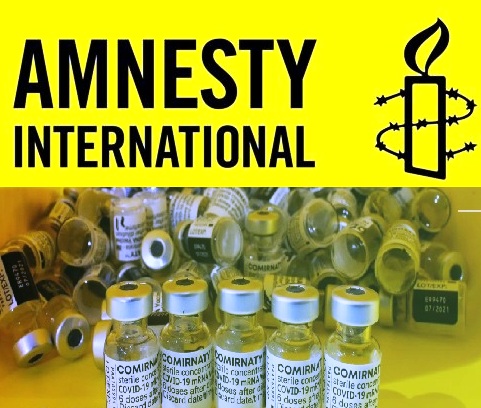Since its launch in Tunisia, the vaccination campaign against Covid-19 has sparked controversy regarding the unfair distribution of the vaccine and the benefit of a certain group or people at the expense of the groups most in need of it, especially those under the age of fifty who suffer from chronic diseases, especially in view of the development of the epidemiological situation, which has become catastrophic after the rise in the virus infection and the unprecedented increase in the number of deaths, which made Tunisia ranked first in the Arab world and Africa in terms of the number of deaths in Covid-19, which stressed the need to accelerate the vaccination schedule to reduce the risk of the epidemic, amid calls to replace the EVAX system , which was considered by several organizations and parties as failed.
In light of the controversy that accompanied the process of distributing vaccines to the beneficiaries, Amnesty International considered that the Tunisian government had committed violations at this level that must be addressed by taking immediate measures to preserve the lives of Tunisians.
The organization has published on its official page a document entitled the vaccination plan against Covid-19, which must be characterized by transparency and justice, and through which it clarified the total violations related to the vaccination campaign against Covid-19 in Tunisia, criticizing the government’s performance at the level of identifying priority groups that benefit from vaccination.
Amna Guellali, Deputy Middle East and North Africa Director at Amnesty International said, “The health care system in Tunisia is in danger of collapsing, with cases of infection rising dramatically, highlighting the shortfall in the government’s vaccination process.” She called on the government to prioritize the right to health, and to ensure that all people most at risk have access to vaccinations.
Amna Guellali, Deputy Middle East and North Africa Director at Amnesty International explained that “the health care system in Tunisia is in danger of collapsing as cases of infection rise dramatically, and this highlights the shortage and shortcomings in the vaccination process carried out by the government.”
Guellali called on the government to prioritize the right to health, and to ensure that all people most at risk have access to vaccinations.
Amnesty International has called on the Tunisian government to ensure that every eligible person within a priority group has access to vaccines, especially socially disadvantaged population groups, by making vaccine prioritization decisions according to transparent, accountable and impartial processes.
Through this document, which criticized the “unfair” method of distributing vaccines, Amnesty International called for ensuring accountability, transparency and non-discrimination in the vaccination distribution process.
The government must publish detailed classified data on the implementation of the national vaccination plan based on indicators for equitable distribution of vaccines, as the World Health Organization provides a guideline on the classification of data for receiving vaccines, and it includes: product, geographic region, age group, occupation, risk factors and framework, for example the nature of the institution, whether it is a prison or an educational institution, and so on, in addition to the economic and social situation, ethnic affiliation, and other characteristics, which Tunisia must adhere to in its data that it publishes on the conduct of the vaccination process to be transparent.
The document indicated that the data on the progress of the vaccination process did not include information on the age groups that were vaccinated, nor indicators showing equal access to vaccines, in order to ensure that priority groups enjoy the vaccine, especially in the face of lack of vaccination.
The Amnesty International document, which diagnosed the reality of the distribution of vaccines in Tunisia and the violations that accompanied them, showed that only 6 percent of the population was vaccinated with two doses of the vaccine, while 13 percent received one dose and 7.5 percent of Tunisian prisoners received one dose of the vaccine.
BM jdd











